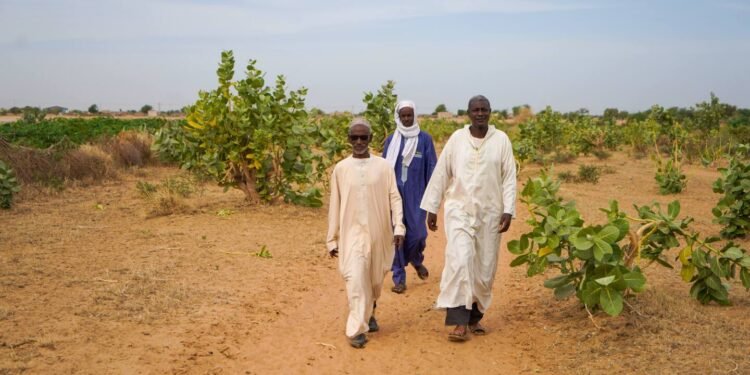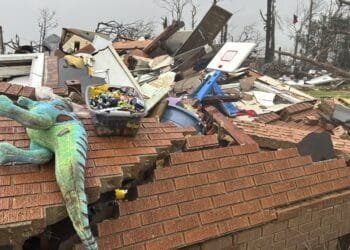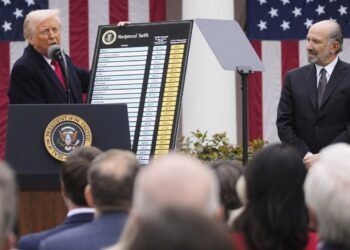DAKAR, Senegal (news agencies) — Rusting pipes in a barren field and unpaid workers are what remain after a U.S. company promised to turn a huge piece of land in Senegal — about twice the size of Paris — into an agricultural project and create thousands of jobs.
In interviews with company officials and residents, media explored one of the growing number of foreign investment projects targeting Africa, home to about 60% of the world’s remaining uncultivated arable land. Many, like this one, fail, often far from public notice.
Internal company documents seen by the news agencies show how the Senegalese-government-endorsed plans for exporting animal feed to wealthy Gulf nations fell apart.
At first glance, the landscape of stark acacia trees on the edge of the Sahara Desert doesn’t hold much agricultural promise. But in an age of climate change, foreign investors are looking at this and other African landscapes.
The continent has seen a third of the world’s large-scale land acquisitions between 2000 and 2020, mostly for agriculture, according to researchers from the International Institute of Social Studies in the Netherlands.
But 23% of those deals have failed after sometimes ambitious plans to feed the world.
In 2021, the Senegalese village of Niéti Yone welcomed investors Frank Timis and Gora Seck from a U.S.-registered company, African Agriculture. Over cups of sweet green tea, the visitors promised to employ hundreds of locals and, one day, thousands.
Timis, originally from Romania, was the majority stakeholder. His companies have mined for gold, minerals and fossil fuels across West Africa.
Seck, a Senegalese mining investor, chaired an Italian company whose biofuel plans for the land parcel had failed. It sold the 50-year lease for 20,000 hectares to Timis for $7.9 million. Seck came on as president of African Agriculture’s Senegalese subsidiary and holds 4.8% of its shares.
Now the company wanted the community’s approval.
The land was next to Senegal’s largest freshwater lake, for which the company obtained water rights. African Agriculture planned to grow alfalfa and export it to Saudi Arabia and the United Arab Emirates. Both traditionally buy alfalfa from the U.S., but land in alfalfa production there has dropped by 38% in the last 20 years, largely due to drought caused by climate change, according to the U.S. Department of Agriculture.
The proposal divided the community of subsistence farmers. Herders that raised livestock on the land for generations opposed it. Others, like Doudou Ndiaye Mboup, thought it could help ease Senegal’s unemployment crisis.
“I bought their dream. I saw thousands of young Africans with jobs and prosperity,” said Mboup, who was later employed as an electrician and now leads a union of employees.
Despite the formation of an opposition group called the Ndiael Collective, African Agriculture moved ahead, hiring about 70 of the community’s 10,000 residents.
After planting a 300-hectare pilot plot of alfalfa, the company announced in November 2022 it would go public to raise funds.
African Agriculture valued the company at $450 million. The Oakland Institute, an environmental think tank in the U.S., questioned that amount and called the deal bad for food security as well as greenhouse gas emissions.
The company went public in December 2023, with shares trading at $8 on the NASDAQ exchange. It raised $22.6 million during the offering but had to pay $19 million to the listed but inactive company it had merged with.
That payment signaled trouble to investors. It showed that the other company, 0X Capital Venture Acquisition Corp. II, didn’t want to hold its 98% of stock. And it highlighted the way African Agriculture had used the merger to bypass the vetting process needed for listing.
One year later, shares in African Agriculture were worth almost nothing.
Now, security guards patrol the land’s barbed-wire perimeter, blocking herders and farmers from using it. The company has been delisted.









 United Arab Emirates Dirham Exchange Rate
United Arab Emirates Dirham Exchange Rate

